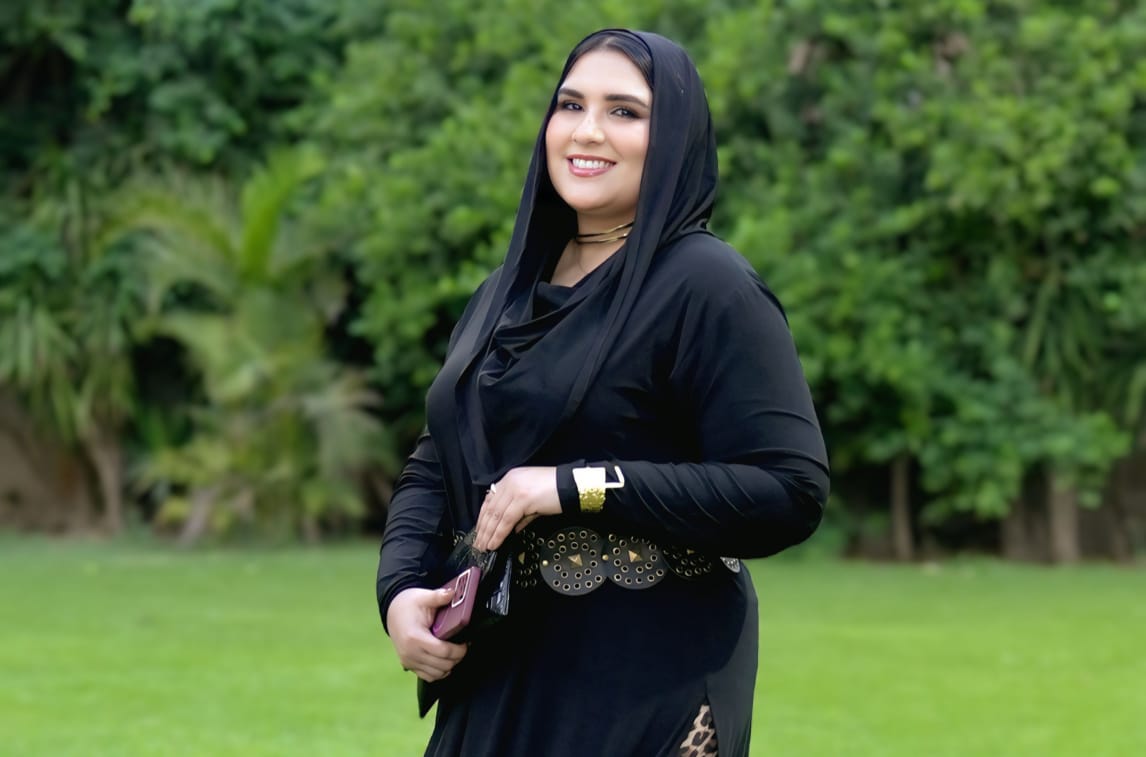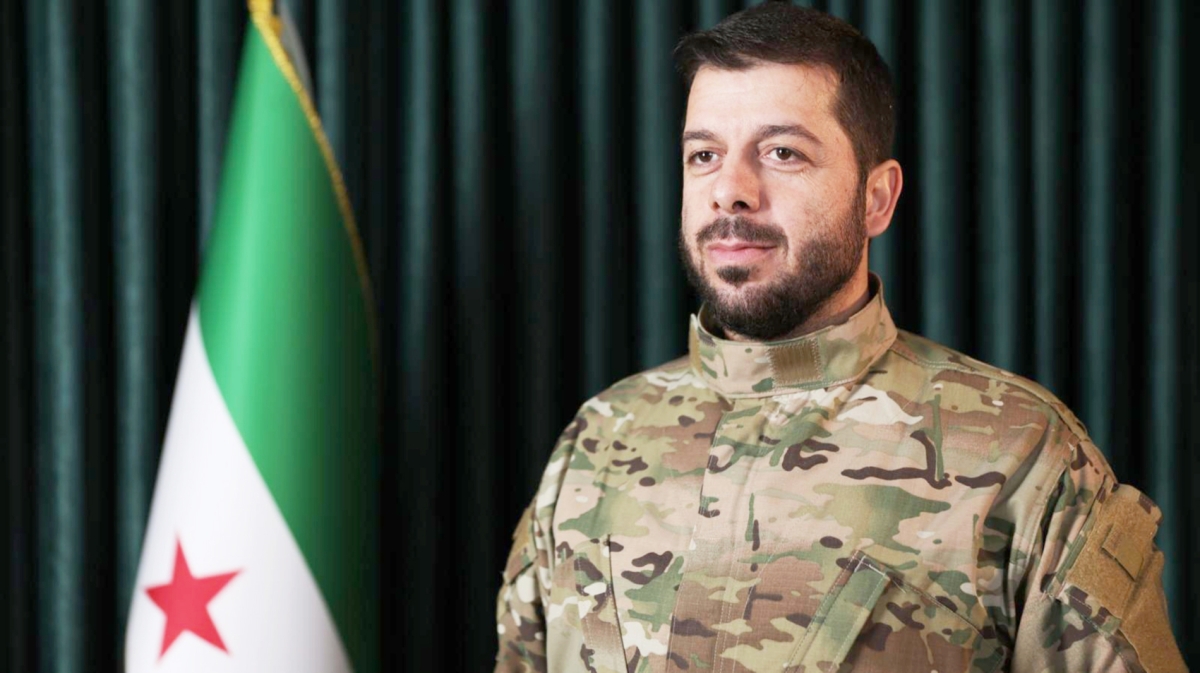by Vernas Hefzy
(originally appeared in Masr Times in Arabic)
 Vernas Hefzy
Vernas Hefzy
Following the victory of the Syrian armed opposition factions that ended the rule of former Syrian President Bashar al-Assad, I interviewed Brigadier General Ahmed al-Dalati, a leader in the Syrian military operations department. We discussed the new government’s vision, the issue of minorities, foreign relations, and the Israeli issue following the targeting of Syrian sites. The conversation with him was engaging, mysterious, and confusing at the same time.
Today, international newspapers, particularly Israeli ones, are reporting on Brigadier General Ahmed al-Dalati, the official directly leading the talks between Israel and Syria. Maariv newspaper explained that the talks represent a major development in relations between the two countries, in parallel with the encouragement coming from the United States to persuade the new government in Damascus to establish relations with Israel and reduce army attacks in Syria.
The talks are based on side talks conducted through intermediaries since the rebels ousted former President Bashar al-Assad in December, according to two Syrian and two Western sources, as well as a regional intelligence source involved in the matter. Sources said the talks were led by senior security official Ahmed al-Dalati, who was appointed governor of Quneitra Governorate, which borders the Golan Heights. Earlier this week, Brigadier General Ahmed al-Dalati was appointed head of security in the southern province of Sweida, home to Syria’s Druze minority.
As usual, we had a conversation to reveal the figures responsible for shaping the new Middle East map, both locally and globally.
Let’s continue this interview to understand the trends and directions evolving within our regional security environment.
The victory of the Syrian armed opposition factions ended the rule of former Syrian President Bashar al-Assad. In an unprecedented scene, 42-year-old al-Sharaa, the leader of Hay’at Tahrir al-Sham (HTS), known as Abu Muhammad al-Julani, entered the courtyard of the Umayyad Mosque in Damascus amidst cheering crowds of Syrians. He announced the end of Bashar al-Assad’s rule and the liberation of thousands of detainees from the former regime’s prisons.
Syria is now experiencing a new reality unseen since the 1960s. Some are still in a state of shock. Everyone agrees on the importance of the fall of the Assad regime. Some are optimistic, others are anxious, and others are confused about the new regime and the identity of its new leaders.
In this context, Vernas Hefzy interviewed Ahmed al-Dalati, a leader in the Military Operations Department in Syria, about several issues, including the new government’s vision for the coming period, the issue of minorities, foreign relations, and Israel’s targeting of Syrian sites.
First, what are the priorities of the new transitional government?
In circumstances like the one our country is experiencing, the primary goal of any government is to provide security, secure basic services for citizens, and restore normal life. This is paramount. Secondarily, we have prioritized creating the appropriate environment for achieving a political system in which all Syrians participate in choosing their constitution and the shape of their country.
What is the new administration’s vision for the status of minorities in Syria?
Minorities are citizens of this country, an essential part of its history, and certainly an essential part of its present and future. Any form of discrimination against them on the basis of race or ethnicity cannot be tolerated, just like any other member of society. We want to turn the page on the dark page written by the Assad regime in our country’s history. We are creating a turning point now, and we do not want to hear the term “minorities” in the context of discrimination. All citizens of our country will enjoy the same rights and will have the same duties. No one will receive more than they deserve. Everyone is equal. We view members of society based on what they do, not what they believe.
How do you view Israel’s targeting of sites in Syria?
Syria is a sovereign state with a proud history of war and peace. Israel’s bombing of our military sites and targeting of infrastructure in Syria is unacceptable in any way, and we condemn these irresponsible actions by Israel. It is clear to us that Israel is exploiting the exceptional circumstances our country is experiencing. However, we hope the international community will assume its responsibilities regarding Israel’s bombing and attacks on our military and vital facilities.
Will there be future cooperation with countries with a military presence in Syria?
The Assad regime’s recklessness has plunged the country into a dark tunnel of war, during which it necessitated the deployment of several foreign forces to fight the Syrian people. As the war progressed, other international powers intervened to achieve some balance. Allowing any foreign forces to remain in Syria must be done through clear agreements that serve the interests of the people, the new Syrian state, and the development of its future army.
What is the caretaker government’s vision regarding foreign relations?
Syria lies within three circles: first, it is part of its Arab surroundings, second, part of its Islamic surroundings, and third, part of the broader global environment. We seek to build good and balanced relations with all countries without exception, relations based on trust, affection, mutual respect, and the pursuit of common interests. Syria (the state and the people) has a long, positive history with its surroundings, and it has never looked down on any of its neighbors.
The caretaker government issued a statement of thanks to seven Arab countries, including Egypt. What is your comment on this?
From the first hours, we witnessed positive interaction from some Arab countries, and we were receiving reassuring signals from our Arab brothers. We consider the continued openness and continued operation of some embassies in Damascus a broad welcome message for our actions. The continued operation of these countries, and the continued presence of their diplomats in Damascus, is something to be commended for.
Will we see normalization of relations with Israel in the future?
It’s too early to discuss this issue. The moment you ask me about normalization, Israeli aircraft are violating our airspace, bombing airports, destroying aircraft, and targeting military barracks. How can we talk about normalization in such circumstances? Normalization is the decision of the Syrian people. When the state stabilizes and we have completed securing the basic needs of citizens, we can address this issue. Of course, the initial decision in Syria, which enjoys the consensus of the Syrian people, does not support the idea of normalization. In any case, nothing is fixed and unchanged, but there is no action without a preamble and a reason.

